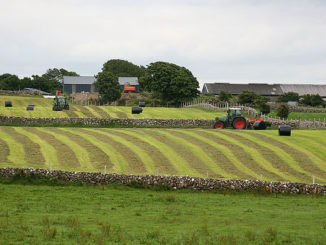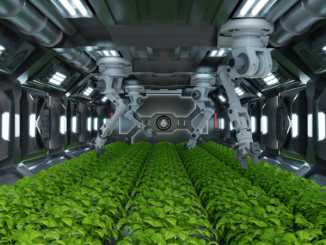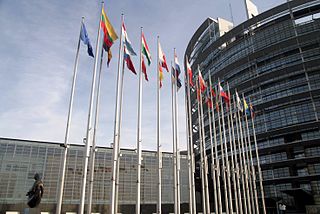In this exclusive three part series, Marta Zygadlo – a lawyer based in Spain who is now focusing on food systems and food governance, explores the fascinating CAP debate in the Iberian country. Part one introduces the broad contours of the debate, including the Spanish government’s response document to the European Commission CAP consultation.
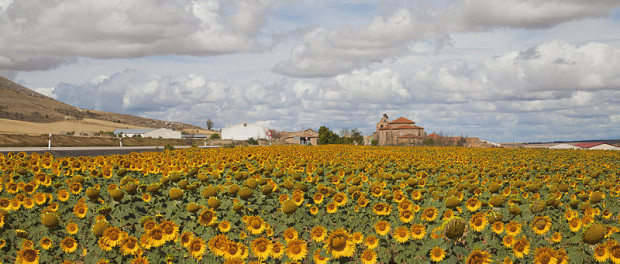 By Marta Zygadlo
By Marta Zygadlo
For the first time the CAP’s reform national negotiations were subjected to a broader debate in Spain. On this occasion the Spanish Ministry of Agriculture, Fishing, Food and Environment wanted to advance its proposal and listen to ideas of all possible stakeholders to enrich the process. (see video below)
https://www.youtube.com/watch?v=mucJdq-5ZXA&list=PLPe9zVlF_C7Cbd3bECXL5HO3juMDQ7Peb&index=2&spfreload=1
This was particularly important with respect to farmers and environmental groups. The internal debate started on March 27th with the two days conference “Building Future CAP” (“Contruyendo la PAC del Futuro). The large group of up to 300 participants, consisted of representatives from European and Spanish administrations, agrarian organizations and cooperatives, food industry, parliamentary groups, environmental associations and different sectors. Each defined their priorities regarding the CAP after 2020. The main challenges put on the negotiation table were: sufficient budget, generational renewal, simplification, sustainability, market orientation and strengthening of farmers’ position within the food-chain. The conference counted with the presence of the EU Commissioner of Agriculture Phil Hogan and vice-president of the European Parliament’s Commission of Agriculture Clara Aguilera. Spain also invited representatives from France, Netherlands and Portugal.
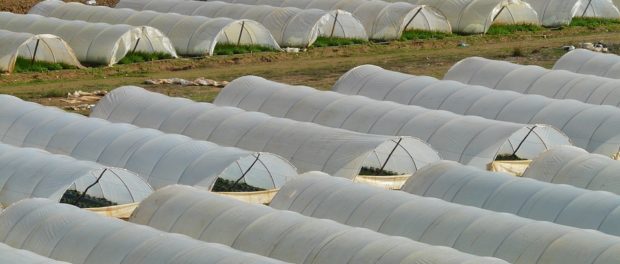
The debate was influenced by Brexit and aimed to agree the country’s common position. The conference conclusions were the base to prepare country’s common position, which was finally achieved in April when central government and regional governments reached on the consensus regarding the European Commission’ (EC) initiative “CAP’s modernization and simplification”.
On May 1st, Spain’s Ministry of Agriculture answered the EC’s questionnaire, attaching the document agreed upon. It incorporates previous conference conclusions and encompasses five main issues and their corresponding proposals: CAP’s funding, direct payments and support for farmers and livestock breeding, specific support programs, safety nets and risk management tools, food-chain focus, rural development.
Ministers of regional governments considered that this document reflects a minimum but still it is a good starting point for ongoing negotiations. At the same time, two of fifteen[1] Spanish autonomous regions that participated in the sectoral conference in April, Aragon and Navarre (both located in the North) did not endorse those proposals. Neither did Spain’s organic farmers, above all those small-scale, nor environmental groups and civil society organizations that supported the Living Land campaign instead.
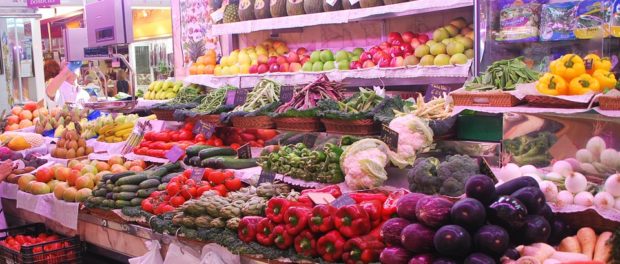
These are Spain’s demands and proposals as reflected in the common position paper:
- The CAP has played, and should continue to play, a key role in European integration. The objectives set out in Article 39 TFEU remain fully in force. Specially, the CAP should contribute to facilitate making the agrarian income equal with those of the rest of productive sectors within the UE.
- The CAP will have to face new challenges, such as those stemmed from food security due to increase of world’s population and consumption, which make it necessary to produce more with less resources when preserving the environment and combating climate change. Thus, the PAC’s goals should align with international commitments and the priorities of the European in matters of growth and employment, internal market consolidation, climate change and sustainable development in order to put the CAP in the key place of the European project.
- Principal protagonists of all measures included in the CAP should be farmers and livestock breeders. Farming must be economically sustainable. The future CAP must contribute to the maintenance of a living rural areas, with an adequate level of employment, where special attention is given to women and young people.
- Europe, because of its diversity influenced by climate and territory includes a wide range of productive models that must be taken into account. The CAP should reflect this diversity, which should be translated into flexibility to take into account those different realities, in particular agriculture in the Mediterranean, mountain and in remote/ultra peripheral regions (i.e. in Spain Canary Islands).
- To meet these new challenges, the CAP needs financing that match its aspirations.
- The negotiation of trade agreements with third parties should include corresponding impact assessment studies on individual and sector level. The Spanish agri-food sector has a clear international orientation. Internationalisation and the opening of markets are key questions; free trade agreements should take into account the standards required for EU’s farmers.
- The CAP remains a complex policy; a real simplification of the rules and procedures is needed, which should be linked to the efficient use of resources. Firm simplification commitment and new technologies are an important opportunity to allocate resources, whose major part nowadays is devoted to administrative procedures, towards knowledge and information.
- The preparation of the future CAP should count on European consumers. The dissemination of all CAP’s benefits and connection with consumers and the rest of the food chain is recognised as a pending issue, that is indispensable to improve citizen’s perception of such policy and its suitability to face challenges of food security and environment preservation when dignifying farmers’ and livestock breeders’ image.
- There is a need for a clear and stable legislative framework guaranteeing farmers the necessary legal security.
[1] There are 17 regional governments in Spain. Cantabria and Basque Country did not participate in the sectoral conference where the consensus was reached.
 Marta Zygadlo is a lawyer based in Barcelona, Spain. Her professional background is Law, which she studied in Poland, Germany and Spain. Having practiced several years in trademark law, she decided to shift her career and to specialize in areas that she is passionate about – those related to food systems. At the moment, she is completing the Master in Food, Society and International Food Governance at the Open University of Catalonia. Her interests encompass topics and areas like sustainable food systems, food security based on the right to food, food sovereignty, food law and food policies.
Marta Zygadlo is a lawyer based in Barcelona, Spain. Her professional background is Law, which she studied in Poland, Germany and Spain. Having practiced several years in trademark law, she decided to shift her career and to specialize in areas that she is passionate about – those related to food systems. At the moment, she is completing the Master in Food, Society and International Food Governance at the Open University of Catalonia. Her interests encompass topics and areas like sustainable food systems, food security based on the right to food, food sovereignty, food law and food policies.



